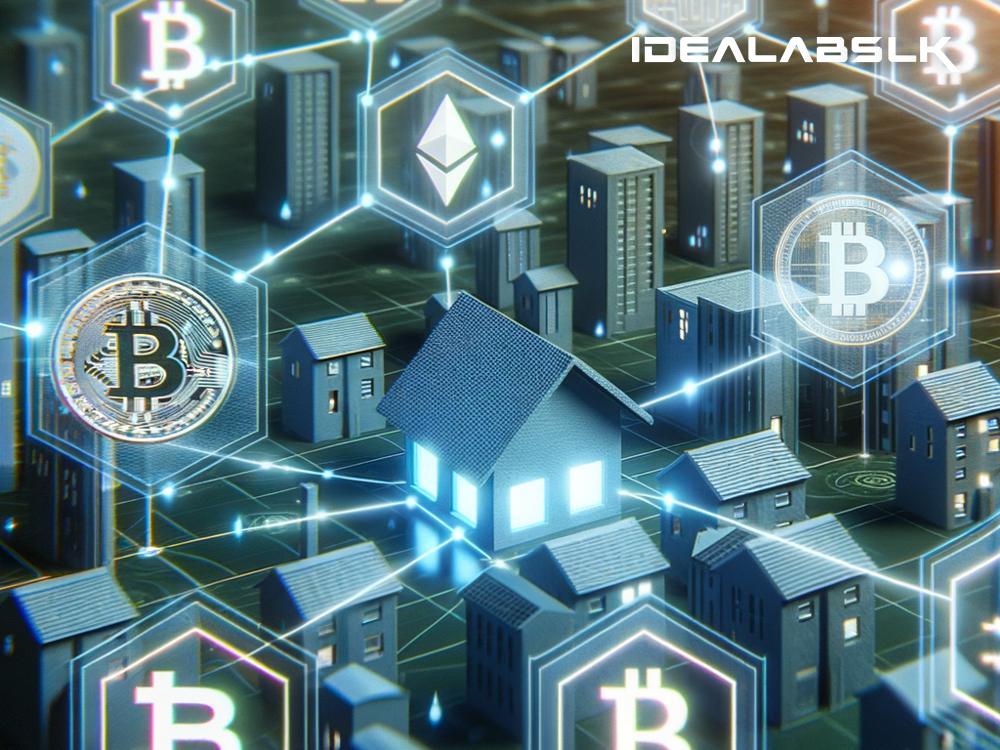Title: How Blockchain is Transforming Real Estate Financing: A Simple Guide
In the world of real estate finance, the winds of change are blowing, and they're being powered by a technology that many of us have only heard of in the context of cryptocurrencies like Bitcoin. Yes, we're talking about blockchain—a tech that's silently revolutionizing how we secure and manage transactions in the real estate sector.
But wait, what exactly is blockchain? Imagine a digital ledger that's not just in one place, but copied across a network of computers. Every time a transaction occurs, it's recorded in this ledger, and because it's decentralized (spread out over many computers), it's incredibly secure. No single entity can tamper with the records, making fraud virtually impossible.
Now, let's dive into the nitty-gritty of how blockchain is making real estate financing more secure and efficient.
1. Eliminating Fraud and Mistakes
In traditional real estate transactions, there's a lot of paperwork, and wherever there's paperwork, there's room for errors and fraud. From forging signatures to faking documents, the risks are numerous. Blockchain comes as a knight in shining armor, reducing these risks significantly. Since every transaction is recorded on a transparent and immutable ledger, it's much harder for anyone to pull off a scam.
2. Speeding Up Transactions
Ever been part of a real estate deal? Then you know it can be a sloth-like process, taking weeks or even months to close. A big part of the delay is the painstaking process of verifying ownership, ensuring the property is free of liens, and confirming the buyer's funds. Blockchain can automate these verification processes through smart contracts—self-executing contracts with the terms directly written into code. This means transactions can be completed in a fraction of the time.
3. Cutting Out the Middlemen
Traditionally, buying a property involves a host of intermediaries: real estate agents, lawyers, banks, and more. Each of these parties adds their fees, hiking up the overall costs. Blockchain's ability to provide a secure and transparent transaction platform can diminish the need for some of these intermediaries, making the process cheaper and potentially more straightforward for both buyers and sellers.
4. Tokenization: Making Real Estate Investment More Accessible
Blockchain introduces the concept of tokenization to real estate. This means breaking down property ownership into digital tokens that represent a share of the property. These tokens can be bought and sold on blockchain platforms, allowing for fractional ownership. This significantly lowers the entry barrier for real estate investments, making it possible for more people to invest in properties they couldn't afford outright. It also provides more liquidity, as these tokens can be more easily traded than traditional real estate.
5. Enhancing Transparency
The transparency of blockchain is another game-changer. All parties involved in a transaction can have access to the same information at the same time, ensuring a level of transparency that's unprecedented in traditional real estate transactions. This not only builds trust among stakeholders but also makes it easier to comply with regulatory requirements.
6. Streamlining Payments and Loans
Blockchain can also make the mechanism of payments and securing loans much more efficient. Using cryptocurrencies for transactions can significantly reduce transaction times and fees. Furthermore, blockchain platforms can facilitate peer-to-peer lending, bypassing traditional banking institutions and possibly offering more favorable terms to both lenders and borrowers.
In Conclusion
While it's still early days for blockchain in real estate, the potential is undeniable. By providing a secure, transparent, and efficient framework for transactions, blockchain technology is poised to redefine real estate financing. From making investment more accessible to speeding up transactions and reducing fraud, the benefits are clear. As the technology matures and becomes more widely adopted, we could be on the cusp of a major transformation in how we buy, sell, and invest in properties. The real estate revolution isn't coming—it's already here, and it's powered by blockchain.

